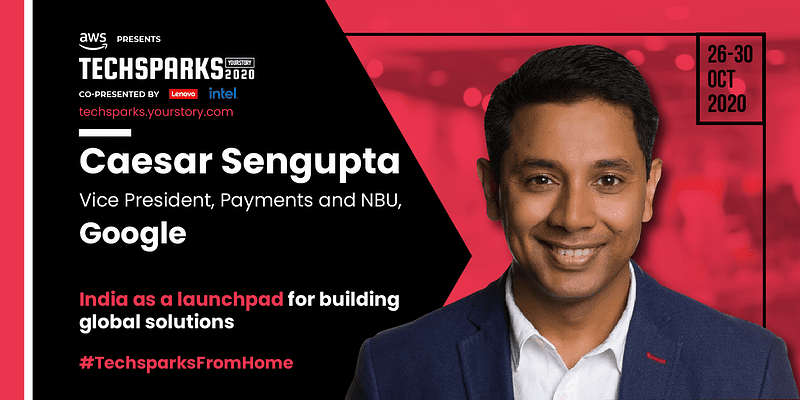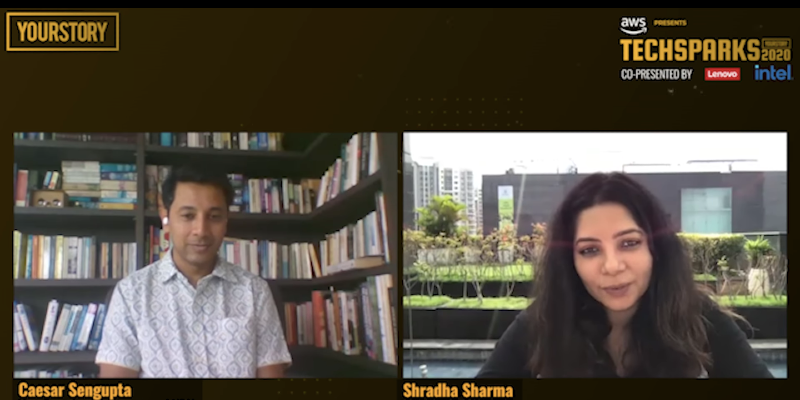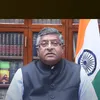With the next billion internet users expected to come from developing countries in Asia, Caesar Sengupta, who leads Google's efforts in engaging the NBU, has a unique point of view on making India’s next billion users happen.
In a virtual fireside with YourStory Founder and CEO Shradha Sharma at the 11th edition of TechSparks, Caesar spoke about how the new generation of internet users are shaping the digital narrative of India.

Even as Google conducted extensive research in engaging the next billion users, a different kind of user — unlike any other seen before — began to emerge, i.e. the mobile-first and mobile-only user.
“There are huge differences in these new users from what we’d seen in traditional models from the West,” said Caesar, “Yet their aspirations and wants were the same as anyone else in the world. They want it more visually. They want more relationships. They want more video. They want more in their vernacular. They want a hybrid language.”
“When we embarked on making the internet more inclusive, we noticed that women tend to use less internet. In 2015, only one out of every 10 Internet users in rural India was a woman. We wanted to change that and bridge the online gender divide in rural India with the Internet Saathi programme,” he added.
As of April 2019, Google had more than 81,500 ‘Internet Saathis’ who have helped over 28 million women become active internet users across 289,000 villages.
Looking to solve for India's digital financial inclusion needs, Google launched Google Pay in 2017 to support the new generation of Internet users, giving them a fast, easy and secure way of making and receiving payments, empowering millions of people to complete transactions with lakhs of merchants.

With over 60 percent of users in India interacting with voice assistants on smartphones in India, Caesar also added that voice is allowing users to engage with technology in their preferred local languages, and become a core part of the user’s life that goes beyond convenience.
Hindi is second only to English as the most commonly used language with Google Assistant. Additionally, using voice technology is not just confined to assistants or smart devices in the home; it’s also shaping the way Indians interact with their smartphones.
“Voice is emerging as the preferred way for people to use Search and browse YouTube,” said Caesar.
Google’s efforts to bring about an inclusive internet also had a pleasantly unexpected payoff in the pandemic as individuals and businesses alike started using digital technologies more than ever before.
“We helped get the right information out to the people by partnering with the Health Ministry. The ‘Donate’ button on Google Pay helped users make donations to their preferred charity or non-profit organisations. And, we helped empower local businesses with ‘nearby stores’ feature,” said Caesar.
Focusing on users, not competition
Contextualising the importance of users and solving for their needs, Caesar talked about focussing on the next 500 million users that need to come online — not just to use the internet for basic things — but to live a digital life.
“We don’t focus on the competition. We’re deeply focussed on the user and what the next generation of users want. Users have a choice every second in their minds, and it’s important that they choose you,” he added.
Betting on India’s digital future
“India is ready for the next stage of growth and we want to be a part of it,” said Caesar, speaking about the vision for Google Pay with India looking to achieve a billion transactions a day soon.
“We want to be ecosystem friendly. We want to deepen our focus on merchants and help local businesses digitise. We want to build bridges between the users and the ecosystem, to help them do everything possible with their digital lives,” he added.
“It’s a bet on India’s future. It’s our belief that India will create incredible companies and innovation over the next five to 10 years. We want to show that we were deeply committed to this journey and we intend on speaking with action and not words,” said Caesar, signing off.
TechSparks - YourStory's annual flagship event - has been India's largest and most important technology, innovation, and entrepreneurship summit for over a decade, bringing together entrepreneurs, policymakers, technologists, investors, mentors, and business leaders for stories, conversations, collaborations, and connections that matter. As TechSparks 2020 goes all virtual and global in its 11th edition, we want to thank you for the tremendous support we've received from all of you throughout our journey and give a huge shoutout to our sponsors of TechSparks 2020.
Edited by Saheli Sen Gupta
Link : https://yourstory.com/2020/10/techsparks-2020-google-caesar-sengupta-internet-users
Author :- Ryan Frantz ( )
October 29, 2020 at 12:22PM
YourStory




